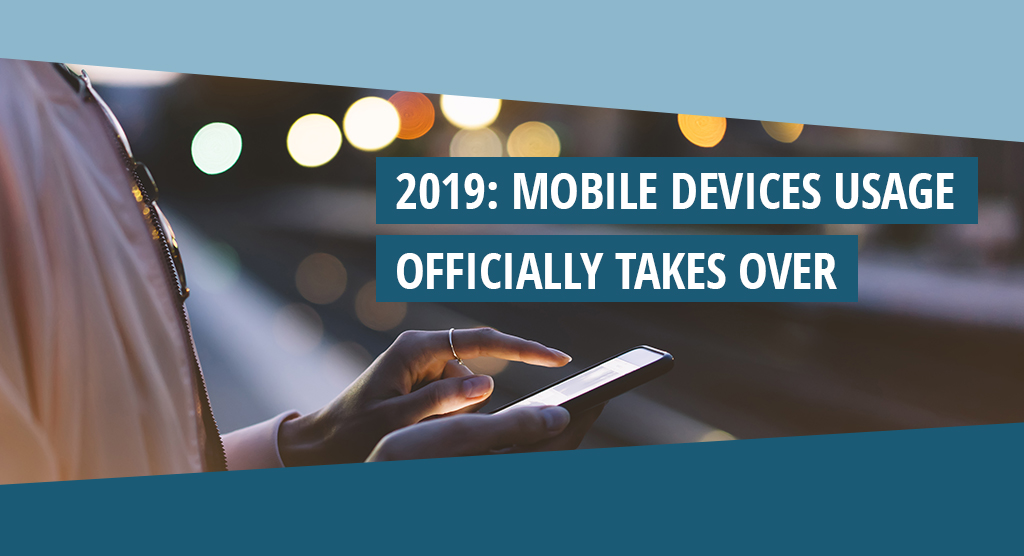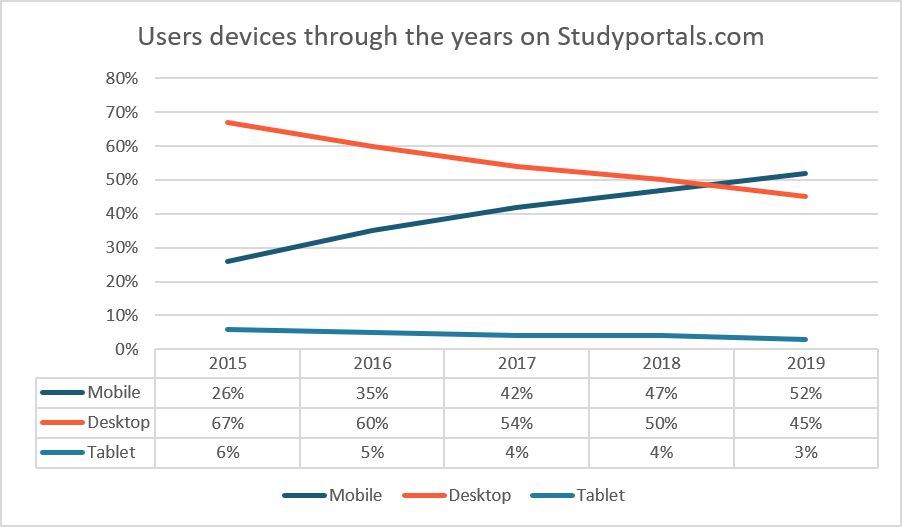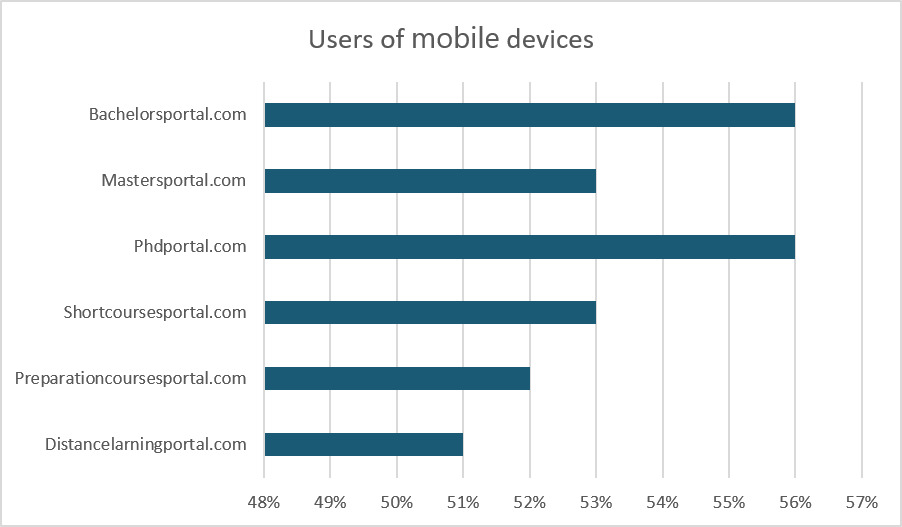2019: mobile devices usage takes over

Like in any other industry, analysing consumers choice and behaviour it’s key to understanding the current trends and foresee the future ones. Whether it’s a Master’s, Bachelor’s or any other programme, the behaviour of our students is dynamic. Yearly, Studyportals examines the students search patterns within the previous annual period.
Analysing the students’ behaviour, we found out really interesting behaviour patterns. The global trend of students ‘going mobile’ is expanding from year to year, but for 2019, it became even clearer that more and more students are using a mobile device rather than a desktop/laptop device to search online. This last period has become the year in which mobile devices have taken over desktop/laptop devices. The mobile phone no longer has just the purpose of making calls, taking photos or browsing the internet, but also of taking important decisions such as pursuing a degree abroad or assessing the next study opportunity.
The below graph shows the evolution in the last 5 years. If we compare data from 2015 with the one of last period, the shift from desktop to mobile device is evident. As expected, the increase of mobile devices goes hand in hand with the decrease of the other two gadgets, tablets and laptops.

If we take a look of each portal’s data, even though the conclusion is that the mobile device has grown a lot between the users, we also find some differences between them. Talking about Mastersportal.com, most of the searches are done via mobile (52%), while the remainder 45% and 3% are done by desktop and tablet, respectively. Furthermore, the data of Bacherlorsportal.com where 56% of students prefer mobile than desktop devices for their searching actions. This fact is probably linked to the average age of the students who visit the portal. Most of the students who use Bacherlorsportal.com belongs to the Generation Z (almost 30% of the total), the age group that has used digital technology from an early age and is comfortable with using Internet and social media channels. This insight flags an obvious demand for universities looking to recruit international students not to neglect in their strategy, the increased usage of mobile devices by their audience.
It comes to our attention that one of the portals in which the mobile device has grown the most is the PHDportal.com with also 56% of students using this kind of device. It is surprising because it is the same percentage as in Bachelorsportal.com but with one main difference: the age. Here only 22% of the users come from the “Gen Z”, 51% of the users are between 25-34 years old and around 14% are between 35 and 44 years old. This data leads us to the conclusion that the age, even though it could help to adopt the mobile phone as main device in an earlier stage, it is not fundamental to change the behaviour of the students and they more willing to use mobile devices in general.
The rest of the portals continue with the trend although with less surprise numbers. After Mastersportal.com, Shortcoursesportal.com is the following one with also 53% of the users preferring mobile device over desktop or tablet devices, with 45% and tablet device with 3%. Preparationcoursesportal.com follows with 52% using mobile devices for their searches and Distancelearningportal.com with 51%.

Further, still related to demographics’ behaviour of users, precisely the age, it is not surprising that the segment between 25 and 34 represents almost half of our overall audience, and the most interested in looking for new studies. More than 46% of our audience belong to this age group, followed by the generation between 18 and 24 years old (26%).
Ultimately, it’s interesting to highlight that the average time spent on each of our portals before vising a university website has also increased overall. For example, if in 2018 a user spent 12:55 minutes on Bachelorsportal,com, in 2019 this time has increased to 13:20 minutes. Also, the average time spent on the all portals was 13:25 minutes in 2018, while in 2019, the it slightly grew to 13:51 minutes. We wonder if this will continue in the next years and if it’s related to the trend of using mobile devices rather than a desktop/laptop device.
Thus, after analysing the data, we can come up with some conclusions. Firstly, we were right stating that mobile will lead the type of device used for searching the next academic opportunity, and that universities should be prepared to meet the students where they really are. Secondly, it is very possible that, in few years from now, using tablets might decrease even more. However, we are certain that the trend of using mobile devices for searching important information will continue to grow more and more every year.
For more updates, follow us!




